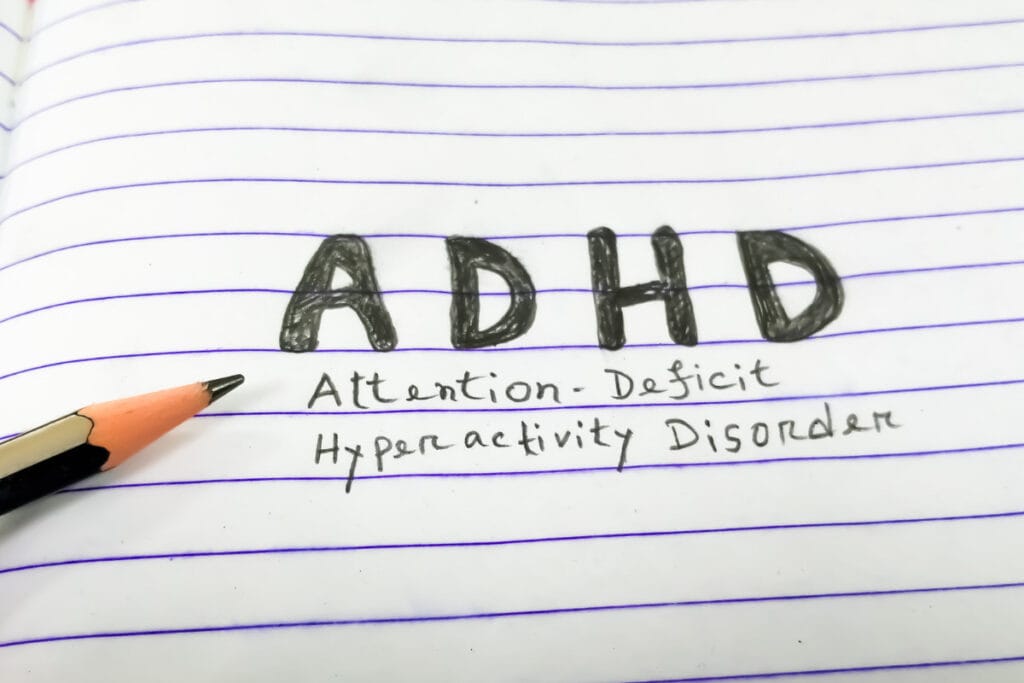ADHD is a neurodevelopmental condition that has become increasingly prominent within the cultural zeitgeist, particularly post-covid lockdowns. The condition was previously thought to exclusively affect children as it was believed that adults would simply grow out of it.
The reality, however is that ADHD is a lifelong condition and adults are simply a lot better at masking and putting adaptations in place for themselves. A lot of students deal with ADHD in school and while they do struggle, the structure provided by foundational education can make managing symptoms significantly more manageable. If you’re not sure if you have it – you can read more about getting tested for ADHD here.
However, University is a completely different beast as you are largely left to your own devices as both work and support structures become purely yours to schedule. It’s incredibly easy to become overwhelmed and drown in the workload but, with the right knowledge and strategies you can survive and thrive during your time at the university.
Lectures and note-taking

If you’re anything like me then taking comprehensive notes in the midst of a lecture is much easier said than done as you end up getting sucked into either listening or typing at the expense of the other. Alternatively, a lot of students just end up re-typing lecture slides verbatim which is probably more stressful than it is helpful.
So what’s a student to do?
Well everyone is different and the effectiveness of every strategy will vary person to person but, with that said, here’s what works for me.
First and foremost, ATTEND YOUR LECTURES IN PERSON!!!!
I know they are probably recorded and they’re on too early and you’re very tired but I don’t care, you’re going! I know I can’t pay attention to a multi-hour virtual lecture as I’ll get distracted doing something else or just zone out completely. However, when attending in person your brain associates the location, a lecture theater or classroom, with listening and taking notes. You’ll also be surrounded by other people who are (hopefully) locked in and taking notes which puts a little bit of pressure on you to focus up and do the same.
As for the notes themselves, what works for me is to pull up the lecture slides on one side of my screen and my notes on the other side which then lets me screenshot the slides and paste them into my notes. By pasting the slides during the actual lecture rather than ahead of time, I am forced to pay attention to what’s being said, what’s on the slides and how it all looks in the document which successfully funnels my mind and keeps me focused on the task at hand.
When the slides are in I then make note of anything extra the lecturer has said while taking care to make my notes at least somewhat readable. It can also help to note down anything funny or memorable that’s mentioned in the lecture or that comes to mind during as that will stick in your brain longer and pull up the memories of the lecture as well. Together, these techniques have made lectures actually useful for me and not just white noise I’m forced to attend.
As for what to do with those notes, you need to keep them at least somewhat organised but I’ll admit, that really isn’t my strong suit. I have a collection of folders and some additional folders inside of those folders which gets the job done but isn’t exactly pretty.
Homework that involves reading
Okay, full transparency here; I very rarely do readings as I find them horrifically dull so I am not going to be the best person to give advice in this area. With that said however I do have a suggestion for people like me in the form of a strategy I am planning to implement.
Take a look at the reading list, considering the theme of that week’s work, and then have a look online for some videos or podcasts about the subject. The key trick here is to listen to these pieces while you’re doing something else, in my case that will usually mean either while doing the dishes or walking/cycling somewhere. By listening to them while doing something menial that mildly stimulates the body, you should hopefully be able to focus your mind on the actual content and some of it will, in theory, be absorbed into a deep dark corner of your brain.
Of course this isn’t as good as actually doing the proper reading but if, like me, you find that readings are often an insurmountable task then listening to a few relevant pieces is so much better than doing nothing i promise.
Planning and writing assignments

This is the big one and likely the one you’re most interested in. For almost every assignment at uni I’ve gone in with the intention of planning and beginning work way in advance but then only actually doing anything within 72 hours of the deadline as I need ‘The Fear’ to kick in before I actually get anything done. I don’t have a great solution here either I’m afraid and most of my friends with ADHD are in the exact same boat. I do however have a few tips to make things not easy per se, but at least a bit more manageable.
The first thing is to look at all of the assignments for all your modules at the start of the semester and make a note of your due dates. Next, look at the details of each assignment to understand the basic topic and requirements of each.
This is the important one so if you only take one thing from this section let it be this; figure out your topic way in advance.
You don’t have to do any research, writing or planning at this stage, just figure out your topic and then, over the next few weeks or months have it nestled in the back of your mind. By doing this you will be subconsciously picking things up in class that can work for your assignment and occasionally your brain may just wonder to it and plan some broad strokes. When the fear finally kicks in you will then find that you already have the broad strokes in your mind and you just need to deal with the details which is a far more manageable challenge.
Studying and ADHD are not natural bedfellows, in fact they are closer to natural enemies. These strategies are not going to make studying suddenly a breeze and turn you into a hyper-organised academic weapon, but they can make the sisyphean struggle a little more bearable, and that’s not nothing.
Uni will be a struggle but you can survive and, if you give it your all, you can thrive no matter how much it feels like you’re bashing your head against a blank word document. You can do this, through all the chaos of your mind and your course, you can not only get through it, you can absolutely smash it.

Topic expertise: Student Cities, Cost of Living, Nightlife, Wellbeing, Accommodation
FAQs on ADHD and Studying at University
ADHD can make it harder to concentrate for long periods, manage time effectively, and stay organised. Many students with ADHD also experience challenges with procrastination, distractibility, and retaining large amounts of information under pressure.
Breaking tasks into smaller chunks, using timers like the Pomodoro method, and adding variety to study sessions can help. Visual tools such as mind maps or colour-coded notes also make it easier to process and remember information.
Yes. UK universities often provide learning support plans, extended deadlines, and exam adjustments. Students can apply for Disabled Students’ Allowance (DSA) to access specialist equipment, mentoring, and software tailored to ADHD needs.
Digital planners, phone reminders, and study apps can make a big difference. Creating a visible daily schedule, prioritising key tasks, and checking in with tutors regularly helps students stay on track throughout the semester.
Maintaining a consistent sleep schedule, exercising regularly, and eating balanced meals can improve focus and reduce stress. Limiting distractions by studying in quiet spaces or using noise-cancelling headphones also helps sustain concentration.
Authors
-
Hi, I'm Elliot. I study Journalism and Politics at the University of Stirling. I love writing about Current Affairs, Food, Games, Film/TV and how ADHD impacts students. When not writing I spend most of my time gaming, cooking, running or just rewatching Taskmaster again:)
View all posts
-
Aminah is a dedicated content expert and writer at Unifresher, bringing a unique blend of creativity and precision to her work. Her passion for crafting engaging content is complemented by a love for travelling, cooking, and exploring languages. With years spent living in cultural hubs like Barcelona, Sicily, and Rome, Aminah has gained a wealth of experiences that enrich her perspective. Now based back in her hometown of Manchester, she continues to immerse herself in the city's vibrant atmosphere. An enthusiastic Manchester United supporter, Aminah also enjoys delving into psychology and true crime in her spare time.
View all posts

